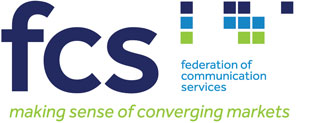Competitive Markets
Saying a business organisation is in favour of competitive markets is a bit like saying a greengrocer is in favour of vegetarianism. What does FCS mean by ‘competitive’ markets?
But right across Europe – and most of the world – communications markets are still dominated by monolithic, formerly state-owned organisations. In the UK, the BT Group – de-nationalised in 1985 – is still far and away the biggest retail provider, the biggest wholesale provider and the owner of most of the utility infrastructure and exchanges, via its Openreach subsidiary.
To create an environment in which competition can flourish in the face of such dominant market power, a ‘competitive market’ in comms therefore means a regulated market. One where BT’s monopoly power is constrained by force of law from shutting out smaller competitors.
The role of the regulator is therefore crucial.
In a ‘normal’ market place like, for example, grocery retailing, multiple suppliers compete for customers’ business by differentiating themselves in terms of price, say. Or quality or opening hours or service or specialisation. Customers can make a choice who they deal with based upon the balance of features and benefits each competing supplier offers them. And if they are let down, fed up or poorly treated, they have the ultimate sanction: they can take their business elsewhere.
In the absence of competition, the regulator’s role is to do the next best thing: to create market conditions that operate as if customers really did have a choice. By imposing legal caps on how much the monopoly provider can charge for wholesale access to its utility infrastructure, for example. Or by constraining its ability to cook up deals with sister companies within the same group.
The current state of the UK comms market, which is arguably the most successful, vibrant and entrepreneurial in the world, is a testament to the success of the de-nationalisation of the communications sector and the entrepreneurial spirit of UK businesses. It is also a testament to the work of Ofcom, the sector regulator, which has been more ‘light touch’ and pro-competition than just about any regulatory body anywhere else in the world.
And yet… BT Group still both owns most of the nation’s infrastructure network as well as selling its own retail and wholesale products on it. Even in its new ‘legally separated’ incarnation, BT’s Openreach subsidiary is still 100% dependant upon a single investor — BT Group. In many parts of the country, there is still no opportunity for comms providers to choose an alternative supplier. And the regulator measures everything by the yardstick of consumer harm, rather than business need.
How much better would things be if Openreach had a genuine wholesale competitor? Or two? Failing that, how much better could things be if Ofcom really acted as a proxy for competition? Maybe one day we’ll find out. That’s why FCS campaigns for free and competitive markets.
Become an FCS Member
The Road To Serfdom
Free markets treat the customer with the respect to make his own decisions, based upon his own values. Find out why this is of crucial importance with this free download from the Institute of Economic Affairs.
Big Brother Watch
FCS is engaged with Big Brother Watch to promote corporate social responsibility which is based around consumers having the broadest possible choice, and taking full responsibility for their own decisions.
Trade Association Forum
FCS’s commitment to ethics and transparency extends to its own corporate governance, which complies with the Trade Association Forum’s code of practice for representative industry bodies.



